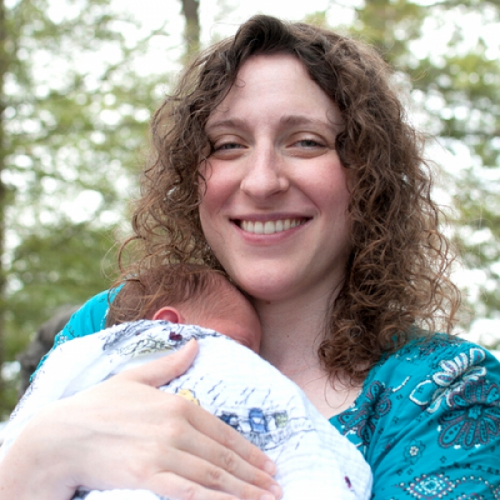
Breastfeeding & Perinatal Mental Health: Practical Tools for Fostering Emotional Safety Lecture Pack
The perinatal period can be a vulnerable time for mental health. It is therefore crucial that all care providers working with families in the perinatal period have education on how to effectively provide support and how to identify parents who may need further care. This package is uniquely designed to provide targeted mental health education for care providers working with lactating families. Join our expert speakers to expand your knowledge of the various factors that influence perinatal mental health and how to provide care in specific circumstances. You can look forward to learning more about the interplay between infant and maternal mental health, the impact of oxytocin on stress systems, providing care in the context of perinatal depression, breastfeeding grief and neurodivergent parents with sensory issues. You’ll also learn how to put it all together and work mental health screening and care into your consults.


L. Hope Wills is a pediatric dietitian and international board-certified lactation consultant. She provides clinical care for children with feeding problems and chronic health conditions. In 2022 Ms. Wills completed the NAPA Fellowship in Infant Mental Health. Her interest in infant mental health stems from her belief in the importance of the first 1000 days of a child’s life and the need to support the breastfeeding dyad. Ms. Wills has presented at the national and local level on the topic of nutrition, feeding, lactation and infant mental health. In addition to clinical service, Ms. Wills serves as nutrition faculty for the California LEND (Leadership Education in Neurodevelopmental Disablities) program, funded by the maternal child health bureau.
1. List 3 ways that infant mental health can support the breastfeeding dyad.
2. Describe 3 three key approaches within the practice of infant mental health.
3. Explain at least one strategy that the learner can include in their practice.
Lactation consultants use a variety of tools and strategies to support the breastfeeding dyad. This presentation will describe three core concepts and approaches embedded within infant mental health: the neuro sequential model, Facilitated Attuned Interactions (FAN) and Touch points. Using a case-based format, the presentation will offer examples of how these approaches can be used to support the breastfeeding dyad through engagement and co-regulations and will be shown how to integrate these practices into a lactation care plan for improved infant mental health outcomes.


Andreea Ola is a Clinical Psychologist and IBCLC with over 8 years of experience working with the mother-infant pair and conducting training in various settings (academic and medical fields, formal and informal education, national and transnational NGOs, and vulnerable populations).
Andreea Ola has been working in private practice in Romania, offering in-depth assessment and individualized solutions for challenging breastfeeding situations: low milk supply, slow weight gain, oral dysfunction, relactation, oversupply, breast refusal, reflux, as well as gentle sleep solutions for babies and parents.
She also has academic teaching experience in Developmental Psychology and Counseling and an interest in Perinatal Psychology.
Andreea Ola has a Bachelor's degree in Psychology and Educational Sciences and a Master's Degree in Human Resources Development.
Andreea Ola is a mother of two children, which inspired her lactation journey. She is also active on several social media channels, delivering free education materials to a community of over 60K users.
Topic: Perinatal Depression and the Breastfeeding Dyad: Exploring Your Role and Responsibilities - [View Abstract]
1 Define the main symptoms of perinatal depression (PND) and the differences between PND and other perinatal mental health challenges.
2 List five outcomes of untreated perinatal depression and its impact on breastfeeding.
3 Explain 2 methods of screening, referring, and supporting breastfeeding families confronted with perinatal depression.
4 Describe two main treatments of perinatal depression and their impact on breastfeeding.
Perinatal depression is the most common obstetrical complication, with 1 in 7 women experiencing depression during pregnancy or postpartum. A vast array of negative outcomes are associated with untreated perinatal depression, including breastfeeding difficulties and premature weaning. In this talk, an evidence-based overview of the symptoms, outcomes, and breastfeeding challenges posed by perinatal depression is offered. The key role of the lactation consultant in screening, referring, and supporting the family confronted with perinatal depression is highlighted so that lactation professionals can incorporate into their clinical practice a model of care based on the individual needs of their clients.
From this presentation, lactation consultants can learn about the characteristics of perinatal depression, the instruments they can use for screening, the main challenges specifically associated with breastfeeding, and how they can refer to and act accordingly to their scope of practice when offering support to breastfeeding families (e.g., management of breastfeeding complications, providing evidence-based information regarding the use of antidepressants during breastfeeding, client-centered communication, and follow-up).


Genny’s fascination with lactation support started after the birth of her second child in 2012 and quickly became an area of special interest.
Her work is informed by her extensive professional experience as a Board Certified Pediatric Nurse Practitioner, International Board Certified Lactation Consultant, and Certified Neurodiverse Lactation Specialist.
Additionally, her personal experiences have provided invaluable insights. By reflecting on her own lactation journey as a neurodivergent person and parenting neurodivergent children, she has developed a passion for creating lactation support that is positive and affirming, and that centers the neurodivergent parent.
1. Describe how the lactation experience of a neurodivergent parent may differ from a neurotypical parent.
2. Explain the intersection of neurodivergence, mental health, and lactation.
3. Explain the use of sensory safe environments as a mental health support tool in lactation.
4. Define Sensory Conscious Lactation Support and provide examples of its application in 3 settings.
There are 1.8 billion neurodivergent people within reproductive age potentially birthing or nursing. It's likely that each of us has provided lactation support to someone who is neurodivergent. However, we may not have considered how lactation intersects with the neurodivergent experience, sensory sensitivities, and mental health. This presentation will provide context around the neurodivergent lactation experience, mental health, and the use of sensory safe spaces as a supportive tool. We will explore and design a sensory-safe lactation space in the office, hospital, and home environment as an adjunct tool for clinicians supporting neurodivergent parents.


Kathleen Kendall-Tackett is a health psychologist and International Board Certified Lactation Consultant, and the Owner and Editor-in-Chief of Praeclarus Press, a small press specializing in women's health. Dr. Kendall-Tackett is Editor-in-Chief of two peer-reviewed journals: Clinical Lactation and Psychological Trauma. She is Fellow of the American Psychological Association in Health and Trauma Psychology and Past President of the APA Division of Trauma Psychology. Dr. Kendall-Tackett specializes in women's-health research including breastfeeding, depression, trauma, and health psychology, and has won many awards for her work including the 2017 President’s Award for Outstanding Service to the Field of Trauma Psychology from the American Psychological Association’s Division of Trauma Psychology. Dr. Kendall-Tackett has authored more than 460 articles or chapters and is author or editor of 38 books.
Topic: Breastfeeding Helps Mothers Overcome the Legacy of Abuse and Adversity: It Makes All the Difference - [View Abstract]
Topic: Burnout, Compassion Fatigue and Self-Care for Members of the Perinatal Team - [View Abstract]
Topic: Burnout, Secondary Trauma, and Moral Injury in Perinatal Care Providers - [View Abstract]
Topic: Does Breastfeeding Protect Maternal Mental Health? The Role of Oxytocin and Stress - [View Abstract]
Topic: Interplay of Oxytocin and Stress Systems: Impact on Breastfeeding and Mental Health - [View Abstract]
Topic: Lessons to Learn from Fed Is Best: How Can We Improve Our Care? - [View Abstract]
Topic: Mother-Infant Sleep Location: It's Not as Simple as it Seems - [View Abstract]
Topic: Trauma and Breastfeeding: Working Effectively with Trauma Survivors - [View Abstract]
Topic: What’s New in Postpartum Depression? A Summary of Current Findings - [View Abstract]
1. Describe 2 ways in which postpartum mental health influences breastfeeding initiation, duration, and exclusivity.
2. Describe 2 features of the role of the oxytocin vs stress systems in determining mental health and how breastfeeding determines which system is upregulated.
3. Explain 3 ways that well-intentioned but ill-informed breastfeeding "support" can actually undermine breastfeeding and how effective support ensures its success
Breastfeeding and mental health are inexplicably linked. The physical act of breastfeeding downregulates the stress system, which protects mental health. But depression, anxiety, and PTSD are direct threats to breastfeeding, making initiation less likely and duration far shorter. Drawing on research from physiology, psychology, and psychoneuroimmunology, this presentation describes the oxytocin vs stress systems and how these systems mutually suppress each other. When oxytocin is upregulated, the stress system is suppressed, which protects mental health. Conversely, breastfeeding problems upregulate the stress system, which increases the likelihood of depression and other conditions. This session also addresses the complex topic of social support. Recent studies show that certain types of “support” completely undermine breastfeeding. This session describes effective support from partners, grandmothers, community groups, and healthcare providers and highlights the links between breastfeeding and mental health.


Tori Hamilton is a Registered Nurse Psychotherapist certified in perinatal mental health, Reiki master, IBCLC, Baby-Led Sleep Specialist, and mom of four. She owns Attuned Therapy + Wellness, a holistic wellness center that uses a collaborative approach to client care. She also owns The Mama Nurse, an online resource for parents that offers information, resources and access to individualized sessions for sleep and feeding.
Tori is an advocate for paid access to lactation support in her rural community in Ontario, Canada. She is a retired La Leche League Leader, offering volunteer peer lactation support in addition to her private lactation sessions. Tori now collaborates with family health teams in her area, using an Independent Contractor model to increase access to lactation support for families in her area.
Since integrating RN psychotherapy into her practice, Tori Hamilton often combines her skillset in lactation and holistic sleep with mental health when working with parents. She views mental health as a continuum, and has a special interest in nervous system regulation and generational healing. Tori sees clients Ontario-wide online as well as locally in her Attuned Therapy office. She also offers business coaching to other perinatal wellness professionals wanting to build or expand their practice.
1. List 3 situational factors that impact maternal mental health.
2. Describe 3 signs that a parent may require mental health follow-up support.
3. Define 2 concrete strategies for when a client demonstrates or discloses a high risk for PMADs, suicidal ideation or intrusive thoughts.
The transition into parenthood is incredibly complex and often results in shifts in our physical and emotional well-being. Unfortunately, many parents do not receive adequate screening and support for perinatal mental health challenges, which in turn can negatively impact their ability to co-regulate with their children and find joy in their breastfeeding and perinatal journey. As lactation professionals, we connect with families during pivotal moments that may involve traumatic experiences, physical pain, financial strain, changes in relationships, and shifts in identity. We have an opportunity to play a pivotal role in identifying and assessing mental health challenges, reducing the stigma of accessing mental health support, and referring to our qualified counterparts to offer treatment. In this PowerPoint presentation, we will review how to perform a mental health assessment during a lactation consult. Topics that will be covered include how birth & breastfeeding experiences impact maternal mental health, how to bring forward difficult conversations including intrusive thoughts and suicide risk assessment, what to chart, and how to know when to refer.


Dr Justine Leach is a speaker and advocate for trauma-informed care in the perinatal period and co-founder of Resilient Birth, a company which trains healthcare providers and other perinatal professionals in supporting survivors giving birth. She also helps expectant parents with histories of trauma prepare for childbirth through trauma-informed childbirth education classes and birth support planning. Dr Leach became a B.A.C.E. certified childbirth educator and advocate after the birth of her two children revealed the impact of trauma experiences on childbirth. She has a Ph.D. on representations of sexual consent in narratives of rape and sexual trauma, and facilitates the Trauma-Informed Perinatal Professionals facebook group. Justine speaks about the experience of giving birth as a survivor of rape and the important role healthcare providers and perinatal professionals play in a birth giver’s experience of trauma or healing.
Topic: Breastfeeding Grief: When Things Don't Go As Planned - [View Abstract]
1. Describe the mental health impact of breastfeeding journeys that do not go to plan
2. Explain the signs of breastfeeding grief
3. Describe trauma-informed listening skills and how to provide empathic support to parents who have experienced or are experiencing infant feeding challenges.
This presentation explores the mental health impact of breastfeeding journeys that do not go to plan and sets out practical steps perinatal professionals can take to better support parents who feel a deep sense of loss when they cannot feed their babies in the way they had hoped. Combining personal narrative, professional insights and research findings, this presentation sheds light on the emotional toll of lactation difficulties. Many parents who initiate breastfeeding are invested in its success and deeply conscious of its benefits, leading to feelings of grief, frustration and guilt if their plans are disrupted. Moreover, some causes of breastfeeding challenges, such as birth trauma, a period of maternal/infant separation after birth, medical issues, pain, and lack of support can contribute to parents reporting their breastfeeding journey was traumatic. And even though the cessation of breastfeeding can bring a mix of emotions from relief to a deep sense of loss, these challenges can leave their scars that parents often bear alone. This presentation describes the protective power of trauma-informed emotional support for parents whose breastfeeding journeys do not go to plan. Participants will learn how to listen to stories of breastfeeding grief/trauma, how to hold space for parents going through feeding challenges and how to help parents navigate hard choices around infant feeding.
Accreditation
AAFP CME Credits for Physicians & Nurses
The American Academy of Family Physicians has reviewed this activity and deemed it acceptable for AAFP credit. Term of approval is from 04/02/2024 to 04/02/2025. Physicians should claim only the credit commensurate with the extent of their participation in the activity. This activity is approved for 6 AAFP Elective CME credits.
Applicable to IBCLC Lactation Consultants, Certified Lactation Consultants (CLCs), CBEs, CLE, Doulas & Birth Educators. GOLD Conferences has been designated as a Long Term Provider of CERPs by the IBLCE--Approval #CLT114-07. This program is approved for 6 L-CERPs.
Dietetic CPEUs - Continuing Professional Education Units
Applicable to Dieticians & Nutritionists, this program is approved for 6 Dietetic CPEUs by the Commission on Dietetic Registration - the credentialing agency for the Academy of Nutrition and Dietetics.
MEAC Midwifery CEUs / NARM Contact Hours for Midwives
This program is accredited through the Midwifery Education & Accreditation Council (MEAC) for 6 Contact Hours (0.6 MEAC CEUs). It is also recognized by the North American Registry of Midwives (NARM) for 6 CEUs/Contact Hours. Please note that 0.1 MEAC CEU is equivalent to 1.0 NARM CEU/Contact Hour.
Nurse Contact Hours
This nursing continuing professional development activity was approved by the American Nurses Association Massachusetts, an accredited approver by the American Nurses Credentialing Center’s Commission on Accreditation for 6 Nursing Contact Hours.
- View this presentation in its entirety, under your individual GOLD login info
- Successfully complete a post-test (3 out of 3 questions correctly answered)
- Fill out the Evaluation Survey
If you have already participated in this program, you are not eligible to receive additional credits for viewing it again. Please send us an email to [email protected] if you have any questions.
Additional Details
Viewing Time: 4 Weeks
Tags / Categories
(IBCLC) Clinical Skills, (IBCLC) Education and Communication, (IBCLC) Pharmacology and Toxicology, (IBCLC) Psychology, Sociology, and Anthropology, Family & Social Support, Infant Mental Health, Lactation Case Studies, Mindfulness & Stress Reduction in Breastfeeding, Perinatal Mood and Anxiety Disorders, Postpartum Depression, Trauma-Informed Care
How much time do I have to view the presentations?
- The viewing time will be specified for each product. When you purchase multiple items in your cart, the viewing time becomes CUMULATIVE. Ex. Lecture 1= 2 weeks and Lecture Pack 2 = 4 Weeks, you will have a total of 6 weeks viewing time for ALL the presentations made in that purchase.
- Time for viewing the talks begins once you purchase the product. For Live Webinars & Symposiums, the viewing period begins from when the live event takes place. Presentations can be accessed 24/7 and can be viewed as many times as you like during the viewing period.
What are bundled lectures?
- Presentations may be available individually or via a bundled package. Bundled lectures are a set of lectures that have been put together based on a specific category or topic. Some lectures will be available in both individual and lecture form, whereas others will be available only via a bundled lecture pack.
Will there be Handouts?
- YES! Each lecture comes with a PDF handout provided by the Speaker.
Some lectures include a Q&A, what does that mean?
- During our online conferences, presentations that occur live are also followed by a short 15 minute Question & Answer Session. The Speaker addresses questions that were posted by Delegates during the presentation. We include the recording of these Q&A Sessions as a bonus for you.
How can I receive a Certificate?
- If this presentation offers a certificate, once you are done viewing the lecture or the lectures within a bundle, submit your attendance record in order to be able to download your certificate. You'll be able to see which credits are offered for the lecture by hovering over the "Credits Available" link within the "Speakers & Topics" tab.
Professionals that selected this package also viewed

|
|

|










